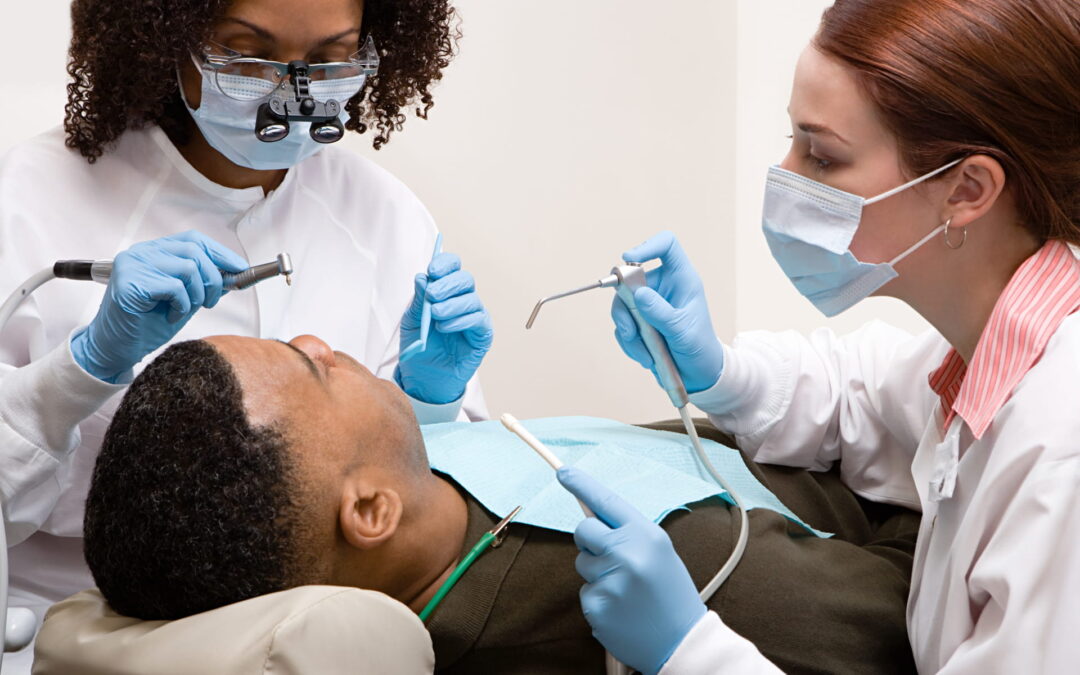Oral health plays a larger role in overall wellness than most people realize. While brushing and flossing are essential, they don’t catch everything that can develop quietly over time. How often you should go to the dentist for checkups depends on your specific health, habits, and history—but one thing stays consistent: these visits matter. Knowing when and why to schedule regular dental exams can prevent small issues from turning into major problems.
Recommended Dental Visit Frequency
Dental checkups aren’t just about clean teeth. They play a role in detecting early signs of decay, gum disease, and even oral cancer. Most people are told to visit every six months, but that’s not always the case for everyone. How often you should go to the dentist for checkups depends heavily on individual needs and risk factors.
- The American Dental Association suggests one to two visits per year for most adults.
- Some patients may need quarterly checkups due to ongoing issues.
- Skipping visits can lead to undetected problems that grow worse over time.
How Often Should Adults Go to the Dentist
Someone who brushes and flosses daily, eats well, and has no history of gum issues may only need one checkup per year, while others require more. A long-time patient who developed gum pockets learned quickly how fast things can shift without warning. Dentists evaluate medical history, current health, and symptoms to determine frequency. Adults often need tailored care based on their lifestyle and risk profile.
- Smoking and drinking increase risk of gum disease and decay.
- Medications can affect saliva flow and oral bacteria balance.
- Stress and teeth grinding may cause enamel damage without regular checkups.
Benefits of Regular Dental Checkups
There’s more happening at a checkup than a quick polish. These visits are structured to detect silent problems before they turn painful or expensive. Cavities can be tiny and painless but still dangerous. Regular visits catch issues when they’re easier to manage.
- Dental X-rays reveal hidden decay between teeth and under fillings.
- Early gum disease is reversible with professional cleanings.
- Oral cancers found early have a higher survival rate, according to the CDC.
How Often Should Kids Go to the Dentist
Children’s dental needs change as they grow. A child should visit the dentist by their first birthday or when the first tooth appears, whichever comes first. As more teeth come in, cleanings and exams help guide development and catch potential problems early. Preventive care is easier than fixing damaged teeth later.
- CDC reports that over half of kids aged 6 to 8 have had a cavity in their baby teeth.
- Fluoride treatments and sealants reduce the risk of decay in children.
- Kids may need cleanings every 6 months or more often depending on diet and hygiene.
How to Know If You Need More Dental Checkups
Everyone has a baseline, but it doesn’t always stay fixed. Some symptoms call for extra attention. If pain lingers or gums bleed during brushing, those are warnings. Delaying an exam might only make things worse.
- Tooth sensitivity can indicate early enamel loss or a cavity.
- Persistent bad breath might point to underlying infection.
- Changes in bite or jaw movement could stem from undiagnosed problems.

What to Expect at a Dental Checkup
Appointments usually feel routine, but each part serves a purpose. Dentists inspect the gums, look for decay, and measure pocket depth around teeth. Hygienists handle cleanings, and X-rays might be taken. Every step gives insight into oral health.
- Cleanings remove tartar that daily brushing can’t reach.
- X-rays spot issues invisible to the eye, such as impacted teeth or bone loss.
- Routine visits offer personalized care plans based on what they find.
Risks of Missing Dental Checkups
Life gets busy, and appointments can slip through the cracks, but ignoring checkups adds risk. Small problems multiply over time. What starts as a stain or tiny cavity may grow into an infection or broken tooth. Waiting rarely makes anything better.
- Untreated gum disease is the leading cause of adult tooth loss, according to NIH.
- Infections can spread to other areas of the body, including the heart.
- Emergency dental care tends to cost far more than preventive visits.
How to Schedule Regular Dental Checkups
Planning is easier when it becomes part of a normal routine. Some set visits around birthdays or school breaks. Dental offices often offer automated reminders to keep patients on track. It helps to make appointments before leaving the current one.
- Twice-yearly visits fit most insurance coverage plans.
- Online portals and mobile apps simplify booking and reminders.
- Rescheduling when needed is better than skipping completely.
How Often Should Seniors Go to the Dentist
Aging affects oral health in specific ways. Dry mouth, medication side effects, and decreased mobility make regular visits essential. Seniors with dentures or implants still need checkups to maintain oral tissue health. What used to work at 40 may not be enough at 70.
- Older adults have higher rates of tooth loss and gum recession.
- According to NIH, nearly 1 in 5 adults over 65 have untreated decay.
- Monitoring for oral cancers and infections becomes more important with age.
How to Care for Teeth Between Dental Checkups
Daily habits make or break long-term oral health. What someone does between visits holds just as much weight as the exam itself. Consistency with brushing and flossing prevents problems. So does limiting sugar and drinking water after meals.
- Brush twice daily with fluoride toothpaste.
- Replace toothbrush every 3 to 4 months or after illness.
- Use floss or interdental brushes to clean between teeth.

Key Takeaways for How Often You Should Go to the Dentist for Checkups
- Most adults need a checkup every 6 to 12 months depending on risk factors.
- Children should begin dental visits by age one and continue routinely.
- Seniors need continued monitoring due to age-related oral health issues.
- Signs like pain, sensitivity, or bleeding gums mean it’s time to go sooner.
- Daily habits, not just visits, play a major role in maintaining oral health.
Frequently Asked Questions
- Can poor dental hygiene affect your heart?
Yes, research from the American Heart Association shows a link between gum disease and increased risk of heart conditions due to inflammation and bacteria entering the bloodstream. - Are dental checkups covered by insurance?
Most dental insurance plans include two preventive visits per year, which often cover exams, X-rays, and cleanings with little or no out-of-pocket cost. - What age should children start brushing with fluoride toothpaste?
According to the CDC, kids should begin using a rice-sized smear of fluoride toothpaste as soon as teeth erupt, under adult supervision. - Do adults really need floss if they brush well?
Yes, brushing only cleans about 60% of the tooth surface. Flossing reaches the areas between teeth where plaque often hides. - Is it okay to skip a checkup if everything feels fine?
No. Many dental issues, like cavities or gum disease, can develop without pain or visible symptoms until they become serious.

